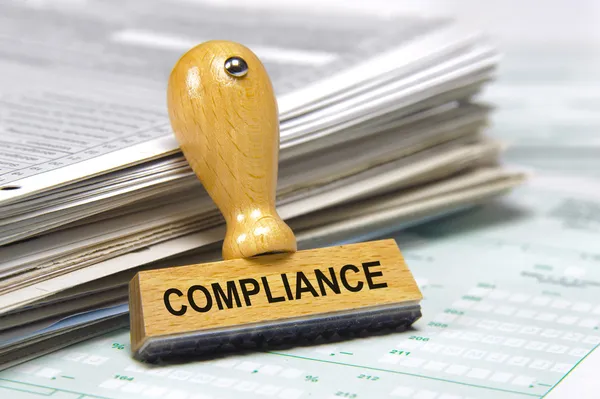
Introduction to International Compliance
The realm of Forex trading demands adherence to a set of international compliance rules, especially for traders from countries like Iran with unique geopolitical positions. International compliance refers to the process of aligning trading activities with the laws and regulations of various countries. For Iranian Forex traders, understanding these global standards is essential to operate legally and efficiently in international markets. Compliance ensures legal trading, prevents financial penalties, and fosters a transparent trading environment.
Navigating international compliance involves understanding a range of factors:
- Legal Restrictions: Iranian traders must be aware of any legal restrictions that their government imposes on foreign exchange trading.
- International Sanctions: Sanctions by other countries or international bodies can impact Iranians' access to global Forex markets.
- Broker Compliance: Choosing a broker that complies with international standards is crucial for legal and secure trading.
Legal Frameworks and Regulations
Forex trading is governed by a complex web of international laws and regulations. These frameworks vary significantly from one jurisdiction to another, and Iranian traders need to be particularly aware of how these differences can affect their trading activities. Regulations often focus on ensuring fair trading practices, preventing money laundering, and protecting investor funds.

Key legal aspects include:
- Know Your Customer (KYC): This involves verifying the identity of clients to prevent illegal activities.
- Anti-Money Laundering (AML): Regulations designed to prevent the movement of funds derived from criminal activities.
- Financial Regulations by Jurisdiction: Different countries have various regulatory bodies, like the SEC in the USA or the FCA in the UK, each with its own set of rules.
Impact of Sanctions on Forex Trading
International sanctions can significantly impact Iranian Forex traders. Sanctions, often imposed due to political or economic disputes, can restrict access to certain markets, limit the use of certain currencies, and affect overall trading conditions. Iranian traders must be acutely aware of the current sanctions landscape to navigate these challenges effectively.
Sanctions can lead to:
- Restricted Access: Limited access to major currency pairs or trading platforms.
- Increased Scrutiny: Enhanced monitoring of transactions involving Iranian traders.
- Difficulty in Fund Transfers: Challenges in depositing or withdrawing funds from trading accounts.
Selecting a Compliant Forex Broker
Choosing the right Forex broker is crucial for Iranian traders to ensure compliance with international standards. A compliant broker not only adheres to legal requirements but also provides a secure platform for trading. Key factors to consider include the broker's regulatory status, the transparency of their operations, and the robustness of their financial compliance measures.
Considerations for selecting a broker:
- Regulatory Approval: Ensure the broker is regulated by a credible authority.
- Reputation: Research the broker's history, reviews, and industry standing.
- Account Segregation: Confirm if the broker segregates client funds from their own.
Understanding Leverage and Margin in Compliance Context

Leverage and margin trading are integral aspects of Forex trading, but they also come under strict regulatory scrutiny. Compliance in these areas ensures that traders do not engage in excessively risky trades that could destabilize the market. Iranian traders should understand the leverage and margin requirements set by different regulatory bodies to trade responsibly and legally.
Key points in leverage and margin:
- Leverage Limits: Different jurisdictions impose varying limits on leverage.
- Margin Requirements: These requirements ensure that traders have enough capital to cover potential losses.
- Risk Management: Compliance with margin and leverage rules is part of effective risk management in Forex trading.
Navigating Currency Restrictions
Currency restrictions can pose significant challenges for Iranian Forex traders. These restrictions may limit the ability to trade certain currency pairs or to move funds freely across borders. Staying informed about current restrictions and finding legal ways to navigate them is crucial for successful and compliant trading.

Challenges include:
- Limited Currency Pairs: Some pairs may be unavailable due to sanctions or local laws.
- Fund Transfer Issues: Difficulties in moving money to and from trading accounts.
- Exchange Rate Fluctuations: Political and economic developments can lead to volatile exchange rates, affecting trade profitability.
Reporting and Taxation Obligations
Iranian Forex traders must also be aware of their reporting and taxation obligations in the countries where they trade. Failure to comply with these requirements can result in severe penalties. Understanding the tax implications of Forex trading and adhering to reporting standards is essential for legal compliance.
Important aspects of reporting and taxation:
- Income Reporting: Traders must report Forex trading income in accordance with local laws.
- Tax Obligations: Understanding the tax rates and payment deadlines in different jurisdictions.
- Record Keeping: Maintaining detailed records of all trading activities for compliance and audit purposes.
Technology and Compliance
Advancements in technology play a significant role in ensuring compliance in Forex trading. From automated compliance checks to advanced security measures, technology helps traders and brokers adhere to international standards efficiently.
Technological tools include:
- Automated KYC and AML Screening: Tools that help in verifying client identities and detecting suspicious transactions.
- Secure Trading Platforms: Platforms equipped with robust security measures to protect trader data and funds.
- Compliance Software: Software solutions that help brokers and traders stay updated with regulatory changes and compliance requirements.
Challenges Specific to Iranian Traders
Iranian Forex traders face unique challenges due to the country's geopolitical situation. These challenges range from accessing global financial systems to dealing with currency instability. Understanding and navigating these challenges is key to successful Forex trading.
Specific challenges include:
- Geopolitical Tensions: These can lead to sudden changes in market access and trading conditions.
- Economic Instability: Fluctuations in the Iranian economy can impact currency value and trading strategies.
- Limited Broker Options: Restrictions may limit the availability of reputable and compliant brokers.
Strategies for Ensuring Compliance
To ensure compliance, Iranian Forex traders should adopt a proactive approach. This involves staying informed about regulatory changes, choosing the right broker, and employing effective risk management strategies.

Strategies for compliance:
- Continuous Education: Keeping up-to-date with international Forex regulations and sanctions.
- Compliance-Focused Broker Selection: Choosing brokers with a strong focus on regulatory compliance and client protection.
- Risk Management Practices: Implementing sound risk management strategies to align with compliance requirements.
In conclusion, compliance in Forex trading is a dynamic and complex field, especially for Iranian traders. By understanding the intricacies of international laws, regulations, and geopolitical factors, traders can navigate the Forex market effectively while adhering to legal and ethical standards. This guide provides a foundation, but continuous learning and adaptation are key to successful and compliant Forex trading.